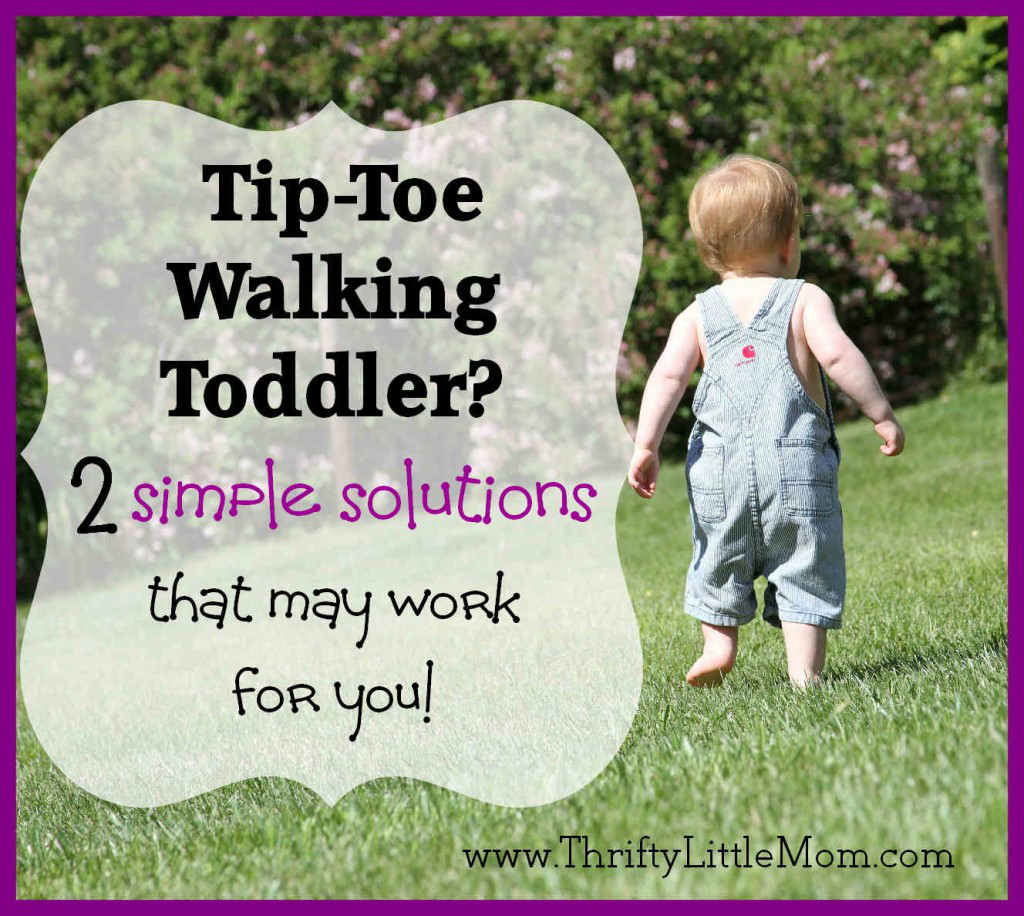Toe Walking Toddler Solution: A Mom’s Review
The toe walking diagnosis.
My sister has been an Occupational Therapist for close to 20 years. (And no, she isn’t a therapist for people trying to figure out their occupations in case you haven’t heard the term before lol) In short, Occupational Therapists work on gross motor skills with people of all ages. They are sort of the opposite of Physical Therapists. While staying with the grandparents, my sister would visit him often and play with him.
Now, when you have an OT as a sister you often feel like playtime is actually more like “evaluation” time but there isn’t anything wrong with that. When I got back from my trip she let me know, as kindly as any sister can, that my son was walking a little too much on his toes and that if I didn’t do something to correct it, he might shorten the tendons in his legs and end up a toe walker for life. She felt that he was toe walking sensory seeking. Meaning his brain is seeking the sensation reward from walking on his toes.
This sent this mama on a quest to learn how to stop toe walking.
Well, I certainly didn’t want to see him toe walk for life. However, I didn’t feel like the pediatrician was the right way to go because they are not foot experts and I felt like that co-pay would be money thrown out the window.
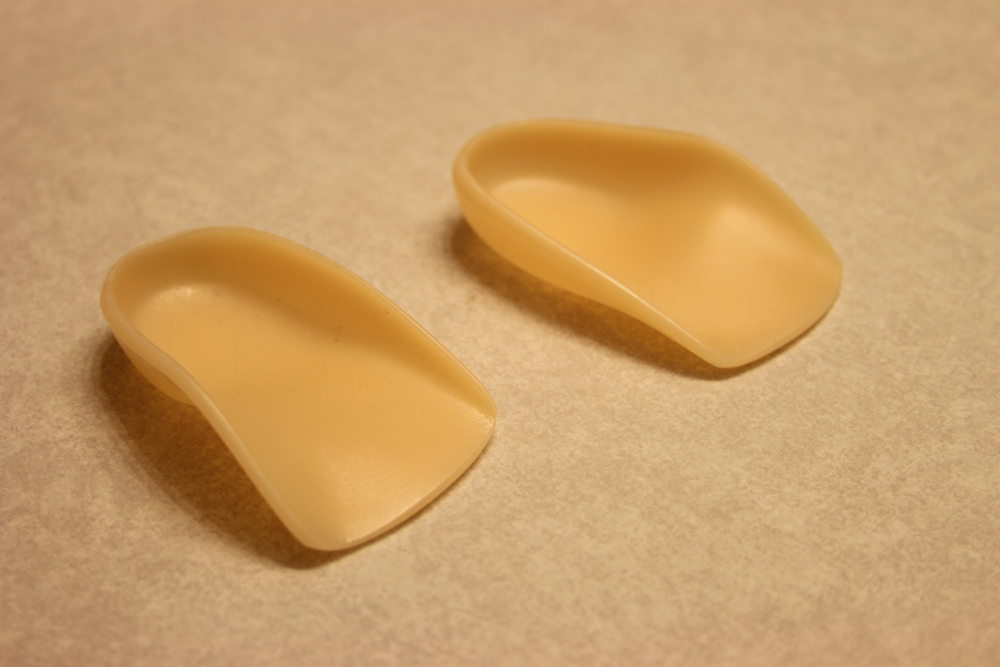
Visiting the Podiatrist for Toe Walking Diagnosis
It just so happens that a close friend of ours is a podiatrist. He told me to make an appointment so he could check it out. The appointment was short and to the point. The Podiatrist checked my 19-month-old son’s feet, calves, and tendons and let me know that nothing seemed awry yet.
He observed my son walking flat and on his toes and let me know that my kid wasn’t really in danger of being a toe walker for life. He explained that it’s common for kids my son’s age and that they should grow out of it by age 4. He indicated that if a child hasn’t outgrown the habit by age 3 or 4, then it is something that definitely needs to be addressed.
Give it to me straight…
So I flat out asked him what he would do if my son was his kid (since his little girl is 4 months younger than my son) and he said that he would:
- Regularly give verbal reminders to him (which my sister started when he spent time with her and seem to work pretty well)
- Try some orthotics = inserts for shoes to prevent toe walking.
The “shoes” to prevent toe walking:
The goal of the orthotics would be to cause him discomfort when toe walking and ultimately keep him flat-footed. He grabbed my son’s shoe and came back with an insert that was a perfect fit! Meaning my son didn’t need any kind of special shoe, just special inserts.
The inserts are beige and made of hard plastic material. Once inserted no one can see them. He suggested that we put them on as often and as long as possible during the day. If my son started removing his shoes a lot, it would be an indication that the inserts were bothering him and that I should stick with 1 hour a day if this was the case.
I’ve had many people reach out and ask where they can get these. I was told the ones you see pictured in my post are only available from a Podiatrist or doctor. However, I followed up with my podiatrist about any solutions that might be available online and he said that the closest option is Powerstep Kids’ Powerkids Pediatric Shoe Insoles available on Amazon.com.
I can’t make any guarantees or recommendations as I haven’t used these and I’m not a doctor. But you have that information to use however you please at your own risk.
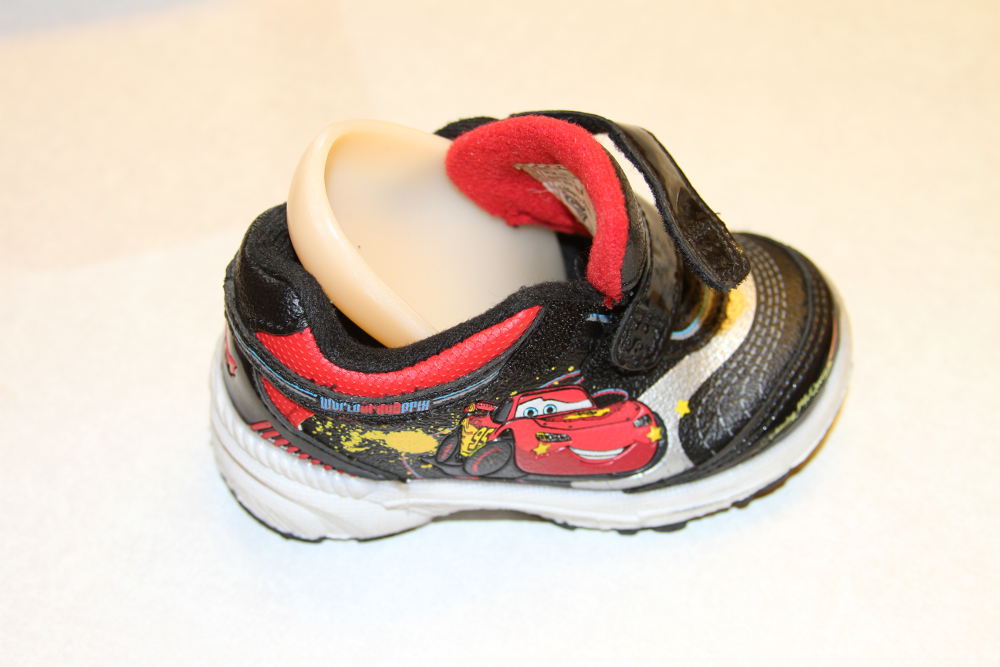
Wearing the Toe Walking Orthotics for the first time…
As soon as we had the shoes with the orthotics on my son’s feet, he went right up on his toes, but also came right back down. That was a good sign. Over the first few days, I noticed a marked improvement in flat foot walking. When the shoes were on, he might go up on his toes for seconds but immediately came down and started walking flat again.
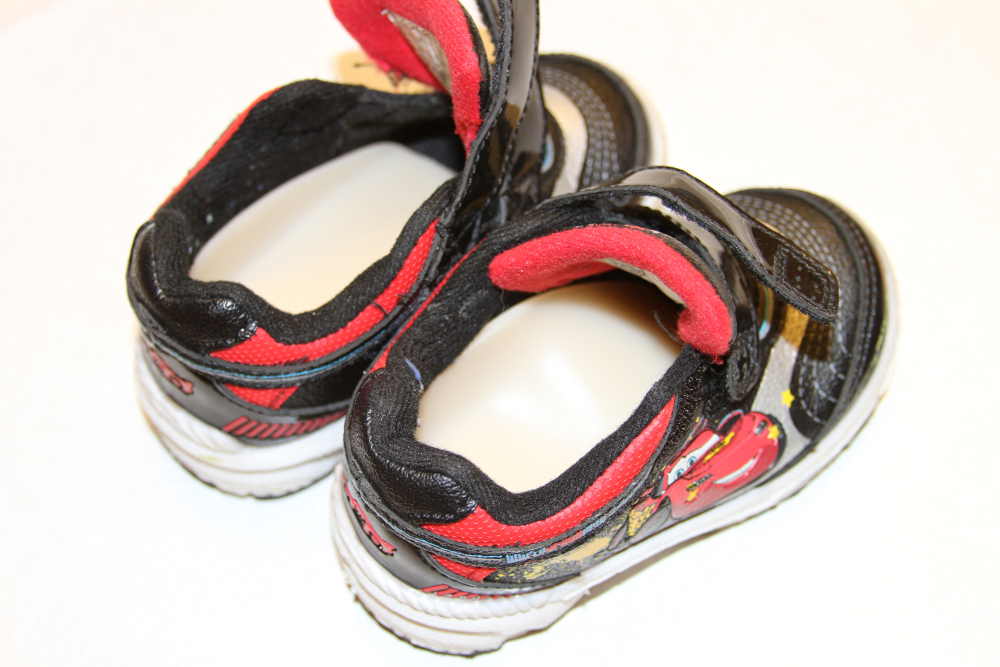
Our updates on the inserts for shoes to prevent toe walking:
- UPDATE: 3 months later- My son no longer walks on his toes and haven’t had to use the inserts any longer. It took about a month of regularly wearing the inserts and giving verbal reminders. Now he walks and runs flat-footed.
- Update: 4 years later- I wrote this post back when my son was first diagnosed with toe-walking and it totally fixed this issue. Now that he is 6 years old we haven’t had any more issues with toe walking since my 3-month update.
If you are concerned about your own child’s toe walking it doesn’t hurt to visit a podiatrist or pediatrician to see what they think about your own child’s situation. The information I have shared today is specific to my own child and advice was given to me by a professional. I am not a health professional, podiatrist nor am I a doctor.
You should totally seek the advice of a trained medical professional with your own questions or concerns as each child is different. I hope this article was helpful and informative!
Adult Toe Walking is a Risk
I thought that the toe walking thing wasn’t a big deal until I was talking about my son’s issue with another adult. He quickly let me in on his own little secret; he was a toe walker for life. He simply wore shoes that made it barely noticeable.
He explained that when he didn’t wear shoes, he always walked on his toes because the tendons in their calves were too short from childhood. He didn’t seem overly concerned about it and I never noticed it. So it may seem like a foolish thing when you first hear it, but it does happen to some people.
Other Toe Walking Sensory Seeking Resources:
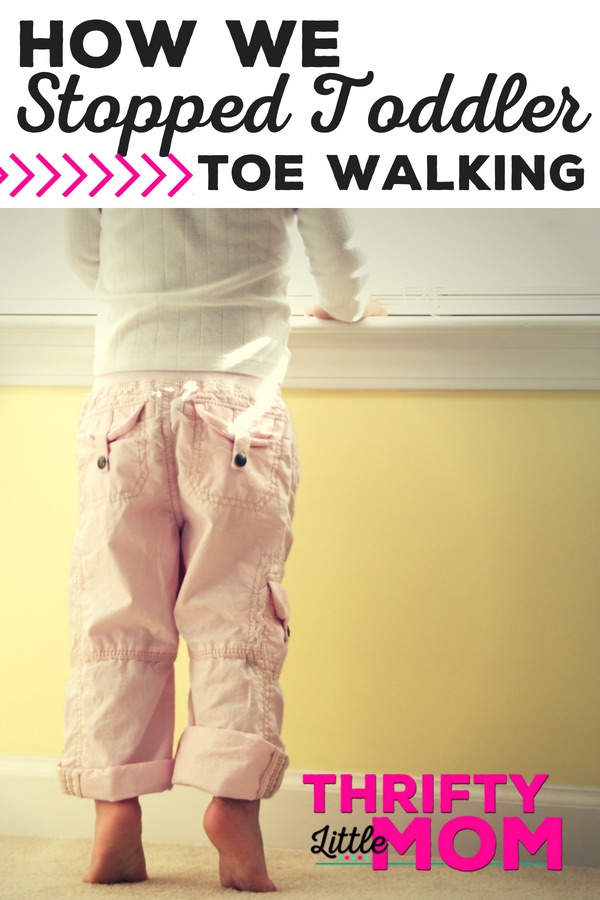

Kim Anderson is the organized chaos loving author behind the Thrifty Little Mom Blog. She helps other people who thrive in organized chaos to stress less, remember more and feel in control of their time, money, and home. Kim is the author of: Live, Save, Spend, Repeat: The Life You Want with the Money You Have. She’s been featured on Time.com, Money.com, Good Housekeeping, Women’s Day, and more!
